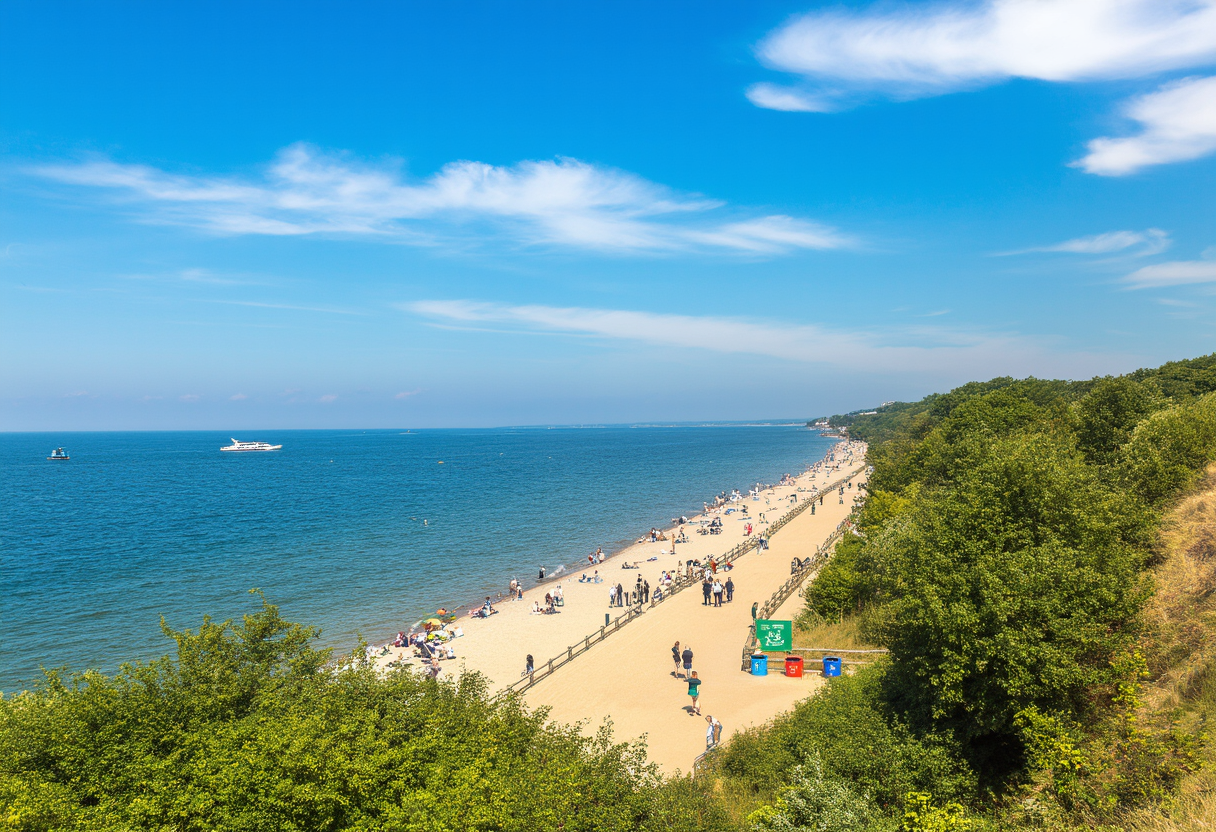Sustainable Practices in Beach Tourism: A Path Forward
As beach tourism continues to grow, implementing sustainable practices becomes crucial for preserving coastal ecosystems. This article investigates the challenges and solutions within beach tourism to promote environmental stewardship, exploring innovative approaches that protect natural resources and enhance traveler experiences.
The Necessity of Sustainability in Beach Tourism
The stunning appeal of beach tourism often comes at a cost to fragile coastal ecosystems. As tourism numbers soar, the need for sustainable practices becomes evident. In recent years, there has been a growing recognition of the environmental impact associated with beach tourism, including overcrowding, pollution, and habitat degradation. Consequently, industry stakeholders must prioritize sustainability in their operational models. By promoting environmentally conscious practices such as waste reduction, conservation initiatives, and responsible tourism campaigns, destinations can mitigate negative effects while enhancing their appeal. Establishing a framework for sustainable beach tourism is essential not only to protect natural resources but also to ensure longevity and resilience within the industry.
Innovative Approaches to Sustainable Beach Tourism
Recognizing the challenges posed by beach tourism, innovative solutions have emerged as key to fostering sustainability. Many coastal destinations are implementing eco-friendly initiatives that showcase their commitment to environmental preservation. From promoting local produce in hospitality establishments to using renewable energy sources, these measures reflect a shift toward greener tourism practices. Additionally, engaging with visitors through educational programs can foster a conscientious travel culture, encouraging tourists to participate in local sustainability efforts. Incorporating features such as beach clean-up events and conservation workshops can create memorable experiences that resonate with environmentally aware travelers. By embracing and innovating sustainable practices, beach tourism has the power to transform its impact and create positive change in coastal communities.
Community Engagement in Beach Tourism
The interplay between beach tourism and local communities is a pivotal aspect of sustainability. Engaging local residents in decision-making processes ensures that tourism development aligns with community values and priorities. By fostering collaboration between industry stakeholders, government, and local populations, sustainable beach tourism can thrive. Furthermore, when residents actively participate in tourism initiatives, it enhances their connection to the environment, encouraging them to protect and preserve local resources. Empowering communities through economic opportunities creates a symbiotic relationship where tourism benefits both visitors and residents alike. Such engagement is essential for building a sustainable tourism ecosystem that celebrates local culture while addressing environmental issues.
Tourist Responsibility and Sustainable Practices
Education and awareness among tourists play a crucial role in promoting sustainable practices in beach tourism. Travelers must recognize their potential impact on coastal environments and adopt responsible behaviors that prioritize sustainability. This includes adhering to local regulations, minimizing waste, and supporting eco-friendly businesses. To facilitate this, destinations can develop informational campaigns that educate visitors on responsible practices, cultural sensitivities, and environmental stewardship. By fostering a sense of responsibility among tourists, the industry can work towards minimizing its ecological footprint. The collective efforts of visitors and industry players are critical in shaping the future of beach tourism.
The Future of Sustainable Beach Tourism
As the beach tourism landscape evolves, sustainability will remain at the forefront of conversations. Continuous collaboration between local governments, industry stakeholders, and communities is vital in establishing sustainable frameworks that protect coastal regions. Additionally, as tourists increasingly demand responsible travel options, destinations that prioritize sustainability will gain a competitive edge. The shift towards eco-tourism, wellness retreats, and immersive experiences points to a future where conservation and enjoyment go hand in hand. Ultimately, through strategic planning, community engagement, and innovative solutions, the beach tourism sector can navigate the complexities of sustainability while providing memorable and enriching experiences for travelers.
